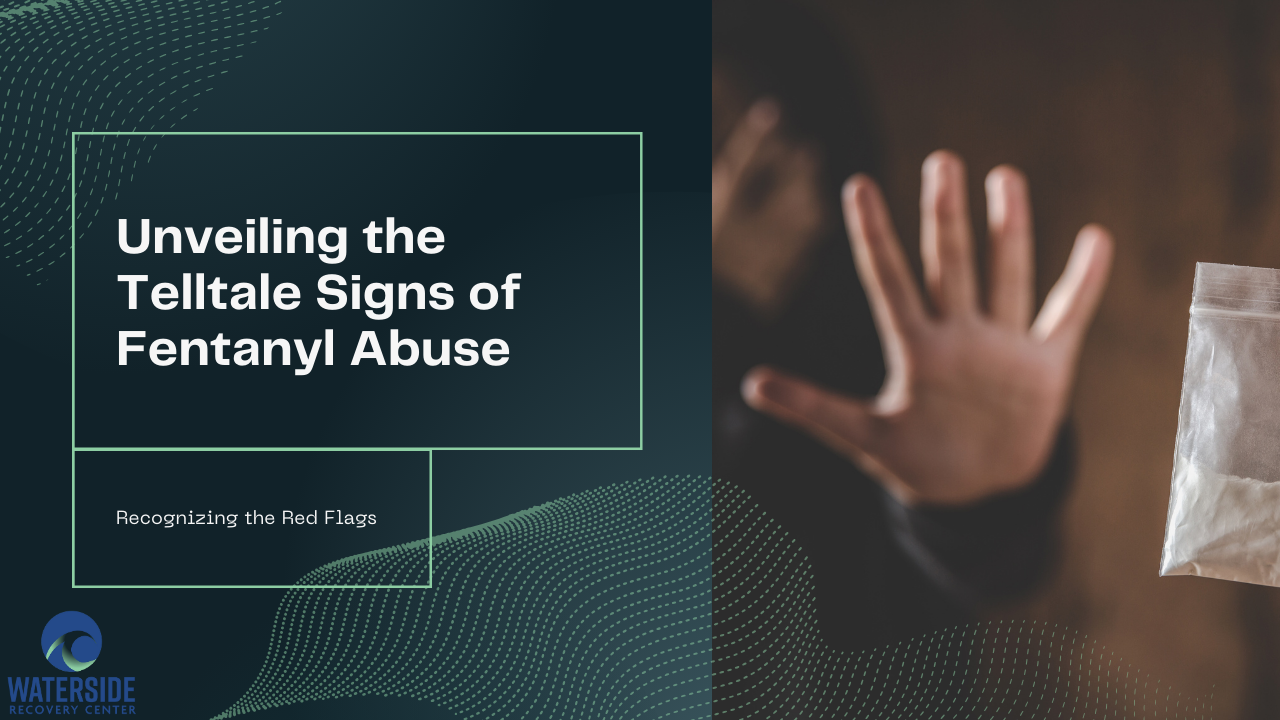Recognizing Fentanyl Abuse
In recent years, fentanyl abuse has emerged as a significant public health concern. Consequently, it has contributed to a surge in opioid-related overdoses and fatalities. This potent synthetic opioid poses a grave risk to individuals who misuse it. Furthermore, understanding the common signs of fentanyl abuse is crucial for early intervention and prevention.
Before delving into the signs of fentanyl abuse, it’s essential to grasp what fentanyl is and how it operates. Fentanyl belongs to the opioid class of drugs, renowned for its remarkable potency—up to 100 times more powerful than morphine. Initially, it was developed for medical purposes to manage severe pain, fentanyl has increasingly found its way into illicit drug markets. Therefore, it has become a leading contributor to the opioid epidemic.
Physical Signs of Fentanyl Abuse:
Now that we have established a foundational understanding of fentanyl, let’s examine the common signs that may indicate its abuse.
Physical Signs of Fentanyl Abuse:
Drowsiness: Individuals abusing fentanyl often exhibit excessive drowsiness or sedation, which can impair their ability to function normally.
Slurred Speech: Fentanyl misuse may cause slurred speech, akin to the effects of alcohol intoxication, as the drug depresses the central nervous system.
Constricted Pupils: One of the hallmark physical signs of opioid intoxication, including fentanyl, is pinpoint or constricted pupils.
- Moving beyond the physical manifestations, let’s explore the behavioral indicators associated with fentanyl abuse.
Behavioral Signs of Fentanyl Abuse
Behavioral Signs of Fentanyl Misuse:
Social Withdrawal: Those grappling with fentanyl addiction may withdraw from social interactions, preferring isolation to conceal their substance use.
Erratic Behavior: Fentanyl abuse can lead to erratic behavior, marked by impulsivity, agitation, or mood swings, as individuals chase the drug’s euphoric effects.
Financial Strain: Sustaining a fentanyl addiction can be financially taxing, leading to strained finances, borrowing money, or resorting to theft to fund the habit.
Now, let’s delve into the psychological cues that may indicate fentanyl abuse.

Psychological Signs of Fentanyl Abuse
Psychological Signs of Fentanyl Misuse:
Depression: Fentanyl abuse can exacerbate or trigger depressive symptoms, leading to persistent feelings of sadness, hopelessness, or despair.
Anxiety: Individuals abusing fentanyl may experience heightened anxiety or panic attacks, especially during periods of drug withdrawal or anticipation of obtaining more fentanyl.
Psychological Cravings: The intense euphoria produced by fentanyl can lead to psychological cravings, compelling individuals to prioritize obtaining and using the drug above all else.
Despite the prevalence of these signs, it is essential to acknowledge that fentanyl abuse can manifest differently in each individual. Additionally, the presence of these signs does not definitively indicate substance misuse. In other cases, they can be symptomatic of other underlying issues.
Understanding the Complexity of Fentanyl Abuse
Fentanyl addiction is a complex and multifaceted issue influenced by various factors, including genetic predisposition, environmental stressors, and mental health conditions. Therefore, it’s crucial to approach the identification and intervention of fentanyl abuse with compassion, empathy, and a comprehensive understanding of the individual’s unique circumstances.
In the next section, we’ll explore the potential consequences of untreated fentanyl abuse and the importance of seeking timely intervention.
Consequences of Fentanyl Abuse
-
Overdose: Fentanyl overdose poses a significant risk due to its potency, with even small amounts capable of causing respiratory depression and death.
-
Physical Health Complications: Prolonged fentanyl abuse can lead to various physical health complications, including respiratory issues, cardiac problems, and gastrointestinal disturbances.
-
Mental Health Impact: Fentanyl misuse can exacerbate or precipitate mental health disorders, such as depression, anxiety, and psychosis, further complicating the individual’s well-being.
Despite the daunting nature of fentanyl abuse, there is hope for recovery through comprehensive treatment and support.
Treatment and Support for Fentanyl Addiction:
Thankfully, there are several different treatment and support options for Fentanyl Addiction.
Medically-Assisted Treatment (MAT): MAT programs utilize medications like methadone or buprenorphine to alleviate withdrawal symptoms and cravings, facilitating the transition to sobriety.
Therapy and Counseling: Behavioral therapies, such as cognitive-behavioral therapy (CBT) and motivational interviewing, help individuals address underlying issues, develop coping skills, and prevent relapse.
Support Groups: Participating in support groups like Alcoholics Anonymous (AA) Narcotics Anonymous (NA) or SMART Recovery provides individuals with peer support, encouragement, and accountability on their journey to recovery.
- Drug and Alcohol Rehab: Inpatient or outpatient fentanyl addiction programs are available. Day Treatment Programs include things like group therapy, individual counseling, MAT and more.
In conclusion, recognizing the common signs of fentanyl abuse is paramount for early intervention and support. By remaining vigilant and compassionate, we can empower individuals struggling with fentanyl addiction to seek help, embark on the path to recovery, and reclaim their lives from the grips of substance misuse. Remember, recovery is possible, and no one has to face addiction alone.
We are here for you.
At Waterside Recovery Centers we pride ourselves on providing the top addiction treatment in Massachusetts. With a range of evidence-based, client-focused and individualized treatment offerings, we are able to provide the ideal support for those seeking recovery from substance addiction. Please feel free to reach out to our help line at anytime.
(866)671-8620






